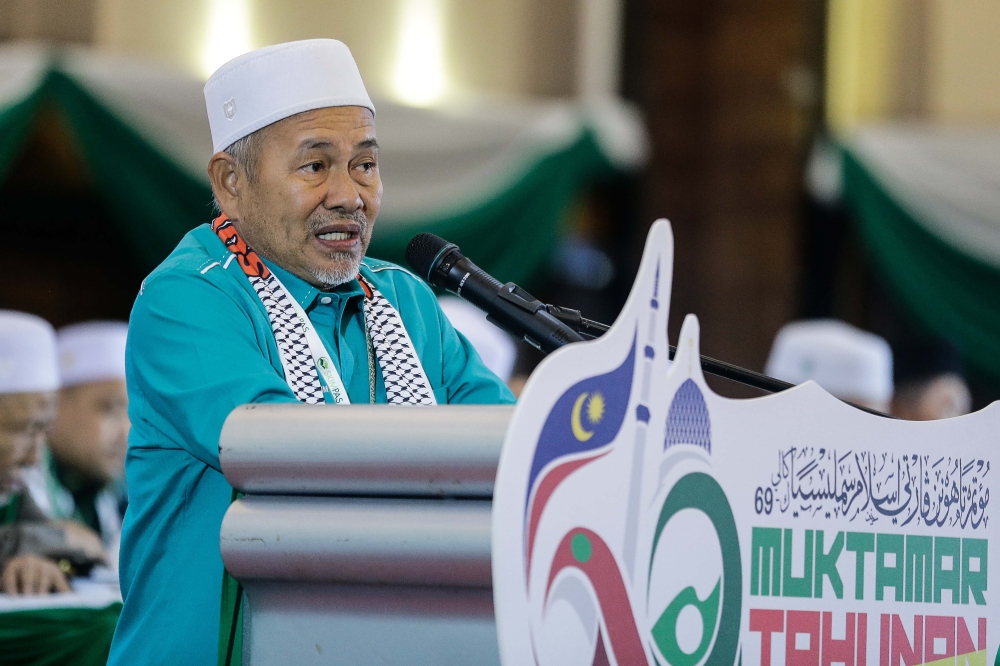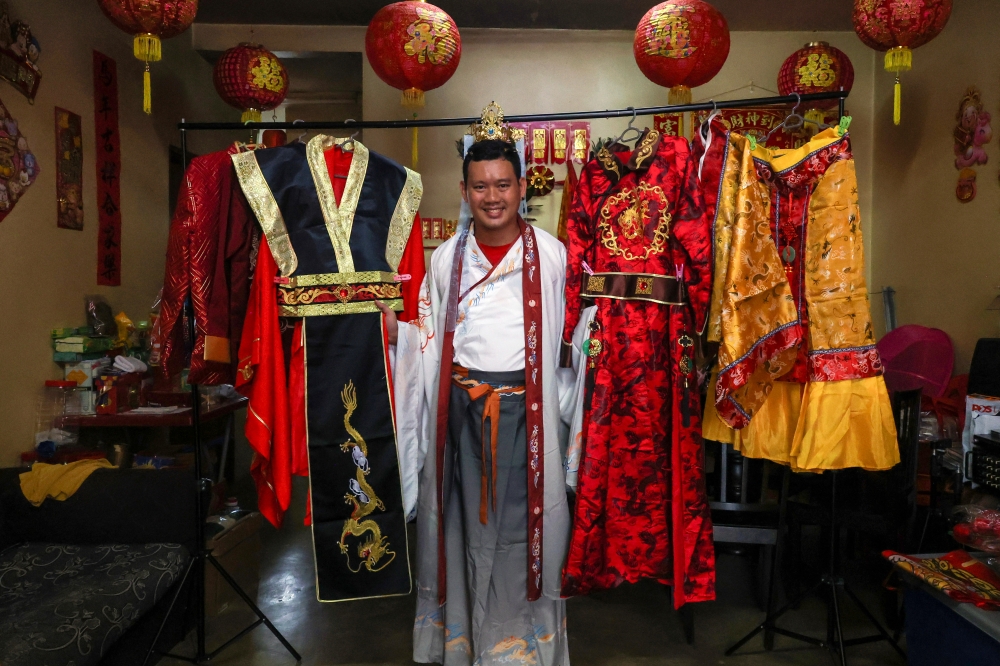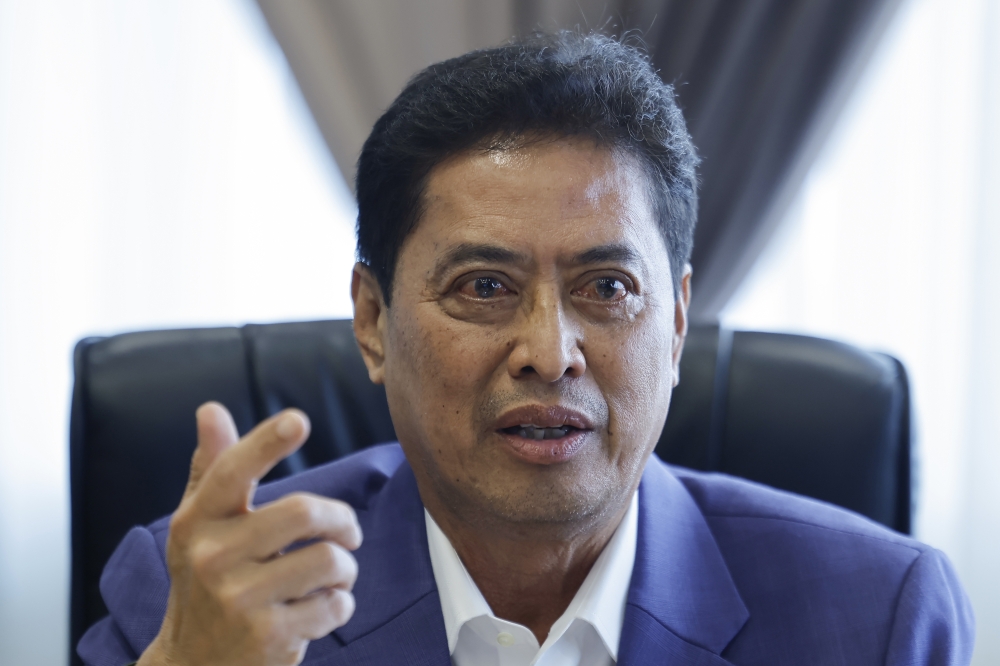KUALA LUMPUR, Aug 19 ― The Rukun Negara was not plucked from the air, declared Tun Dr Mohamed Salleh Abas, one of the elders who helped to draft the National Philosophy in 1970.
“All in the (Federal) Constitution; nothing new taken and nothing was plucked from the air,” he said in an interview for a special Bernama TV documentary entitled Rukun Negara: A Nation United.
The two-episode documentary produced by Bernama in conjunction with the 50th anniversary of Rukun Negara will be aired between August 31 and September 19 over BernamaTV on the ASTRO Channel 502, Njoi 502, UnifiTV 631 and MyFreeView 121, apart from the BernamaTV official Facebook page and YouTube channel.
“… the actual writing and drafting was done by me,” beamed Mohamed Salleh, who was the solicitor-general then. He had gone on to become the Lord President (now Chief Justice) of the then Supreme Court (now Federal Court).
Mohamed Salleh, who turns 91 on August 25, recalled that the members of the Rukun Negara drafting committee considered all the religions of the people of Malaysia and all the provisions of the Federal Constitution.
He said “Belief in God” was placed as the first principle taking into consideration articles 3 and 11 of the Federal Constitution.
Article 3 (1) says Islam is the religion of the Federation; but other religions may be practised in peace and harmony in any part of the Federation while Article 11 (1) says every person has the right to profess and practise his religion, he explained.
Mohamed Salleh said this became the basis for harmony among Malaysians in the aftermath of the bloody racial riots of May 13, 1969.
It was not an easy task, especially, to find the best way to unite the multiracial people in this country, he said, adding that the result or effect can be seen in the peace that has been maintained until today.
“Rukun Negara should be regarded as the spirit which binds the people together and not just (something) to make Malaysia a place where people earn a living, make their riches and return to their country of origin, something like that.
“Now, we want them to remain and build this country so that you can see what it is today,” said Mohamed Salleh whose wife, Toh Puan Junaidah Wan Jusoh, was also present at the interview at their home in Setiawangsa here. The couple has five children.
The Rukun Negara was proclaimed on August 31, 1970, by the fourth Yang di-Pertuan Agong, the late Tuanku Ismail Nasiruddin Shah Ibni Almarhum Sultan Zainal Abidin.
Its five principles, in that order, are Belief in God; Loyalty to King and Country; Upholding the Constitution; Rule of Law; and Good Behaviour and Morality.
Mohamed Salleh emphasised that the Rukun Negara should be the spirit that makes the people realise how important it is to maintain harmony among the three major races and others in the country.
He recalled that several people were involved in drafting the Rukun Negara 50 years ago, and mentioned one of them ― the late Tun Muhammad Ghazali Shafie, popularly known as King Ghaz, who was the home minister.
“… a few others I can’t remember…,” he said.
It is gleaned from archival information that others who helped draft the Rukun Negara included the late Tun Tan Siew Sin; Tan Sri Leonard Linggi Jugah; Tan Sri Kamarul Ariffin; the late Datuk Harun Idris and the late Tan Sri Aishah Ghani.
Following the racial riots of May 13, 1969, Parliament was suspended and a National Operations Council (NOC) was set up to restore peace and stability in the country. Second Prime Minister Tun Abdul Razak Hussein headed the NOC.
The NOC was instrumental in gathering the selected elders to help draft the Rukun Negara which, apart from promoting unity among the people, seeks to maintain the democratic way of life; create a just society; ensure a liberal approach to customs and culture; and develop a progressive society based on modern science and technology.
Mohamed Salleh recalled that it was a challenge drafting the Rukun Negara as the committee members had to come up with ideas on how to bring the people together again after the riots.
“There were very tense moments (for me). I was called by the Ketua Polis Negara (Inspector-General of Police) at that time (Tun Mohamed Salleh Ismael). He said to me, tengoklah (see), every 10 minutes we have reports coming in (of) rumah terbakar dan gaduh-gaduh (houses on fire and commotions),” he said.
A few days after the break out of the riots, there was a need to draft an emergency ordinance, and again Mohamed Salleh was called upon to work on it.
Asked what he feels about people vis a vis the Rukun Negara now compared to the past, Mohamed Salleh said that because the people are enjoying peace now, there is a tendency for them to forget the national philosophy.
“Well, now, I think because of the peace they enjoy, they forget the Rukun Negara. You go and ask people what the Rukun Negara is; they won’t understand…because they are taking it for granted. Rukun Negara has already, shall I say, merged in the hearts and practices of everyone in this country.
“They take it for granted, as it is there; but never bother to look back and see how it was drafted, why it was drafted, why it should be there. You don't find it in the Constitution, but the Rukun Negara is in accordance with the Constitution,” he explained.
The chairman of as-Salihin Trustee Berhad said his wish is for the Rukun Negara to continue to be respected and practised so that Malaysia remains a stable country with nobody suspicious of one another.
Mohamed Salleh, who hails from Besut, Terengganu, also hopes that the younger generation will spread their wings to the international level, study hard and get a good education; then people will have more respect for Malaysia. ― Bernama



















